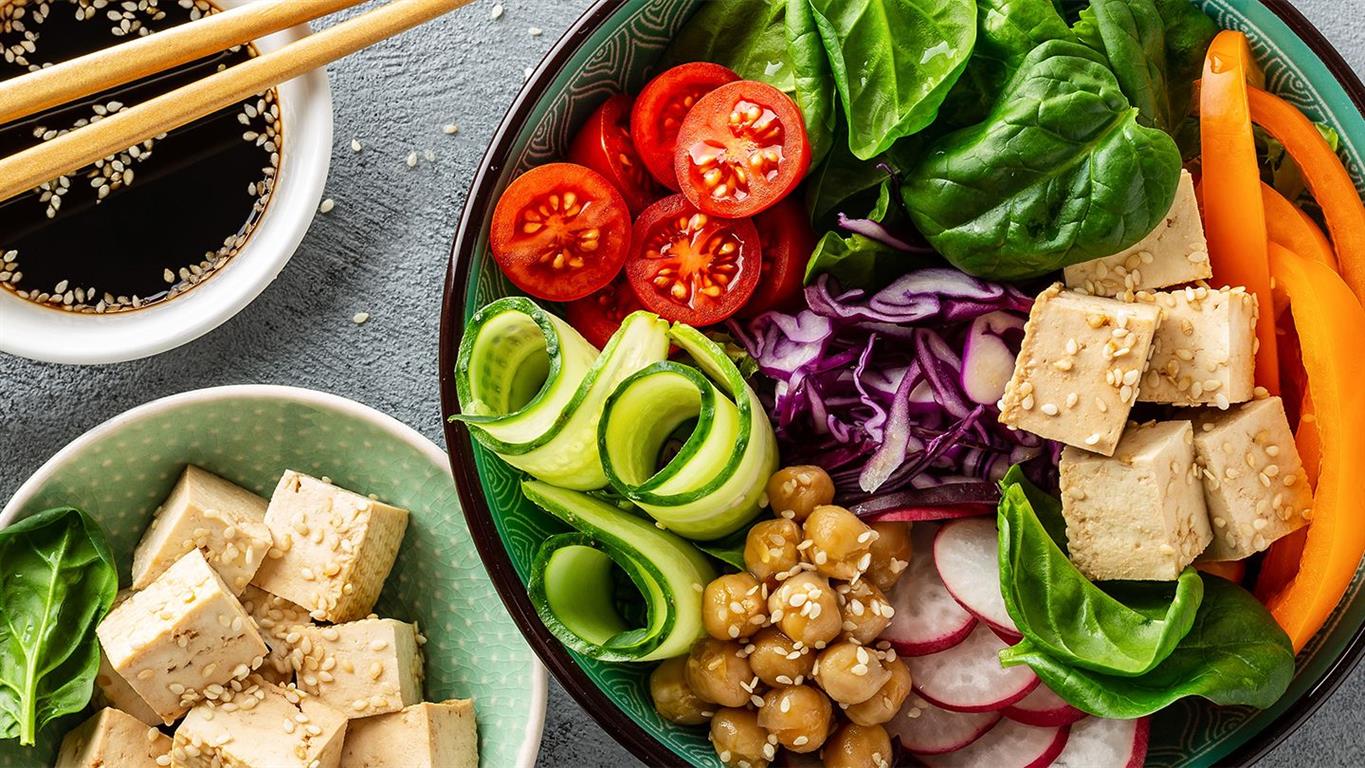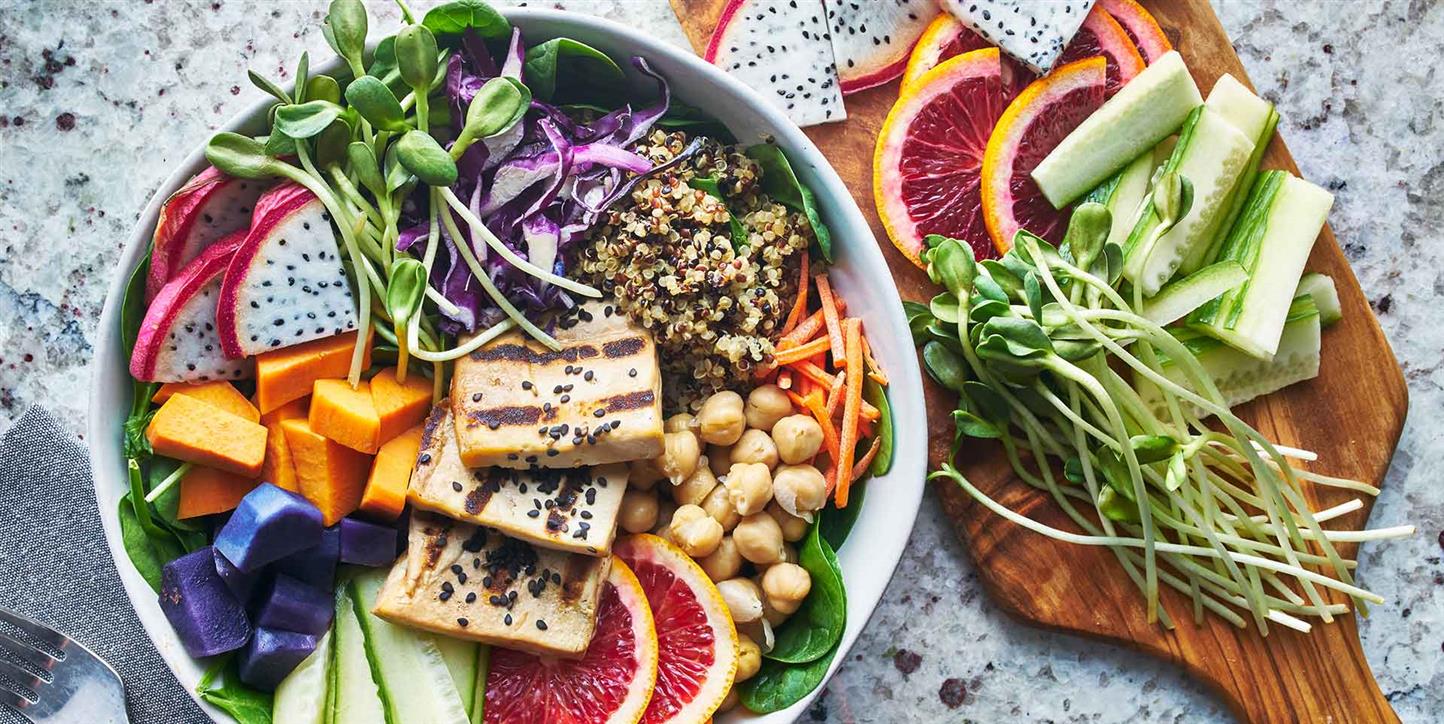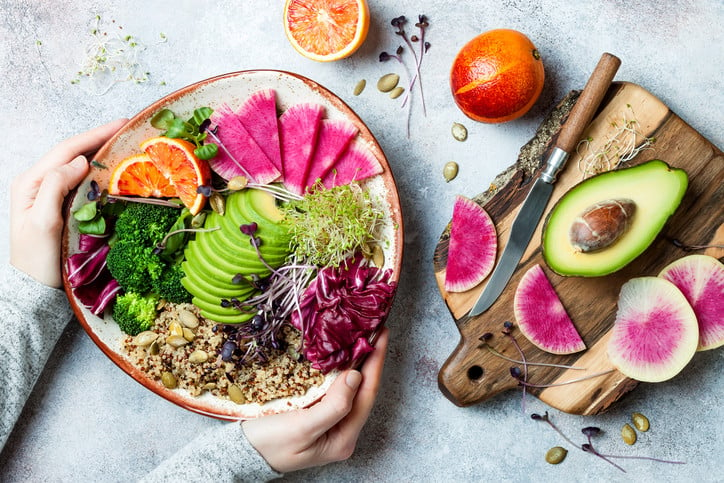In recent years, the popularity of plant-based nutrition and vegan diets has surged, driven by a growing awareness of the health benefits, environmental concerns, and ethical considerations associated with these dietary choices. Transitioning to a vegan diet can be a rewarding and transformative experience, but it also requires careful planning to ensure that you receive all the essential nutrients your body needs. This comprehensive guide aims to provide you with a detailed understanding of plant-based nutrition, its benefits, and practical tips on how to thrive on a vegan diet.
Why Choose a Plant-Based Diet?

Health Benefits of Plant-Based Nutrition
Plant-based diets have been linked to numerous health benefits. These diets are typically rich in fiber, antioxidants, and phytonutrients, which can help lower the risk of chronic diseases such as heart disease, diabetes, and certain cancers. The absence of saturated fats and cholesterol found in animal products can also contribute to better cardiovascular health.
- Fiber: A vegan diet that includes whole grains, legumes, and vegetables can improve digestive health, prevent constipation, and reduce the risk of colon cancer.
- Antioxidants: Fruits like berries and vegetables like spinach are packed with antioxidants, which help combat oxidative stress and inflammation.
- Phytonutrients: The phytonutrient lycopene, found in tomatoes, may reduce the risk of prostate cancer.

Environmental Impact
Choosing a plant-based diet can significantly reduce your carbon footprint. The production of plant-based foods generally requires fewer natural resources, including land, water, and energy, compared to the production of animal-based foods. By reducing meat and dairy consumption, you can contribute to mitigating climate change and preserving natural ecosystems.
- Water Usage: Producing one pound of beef requires around 1,800 gallons of water, whereas producing one pound of wheat requires only 25 gallons.
- Deforestation: The livestock industry is a leading cause of deforestation, particularly in rainforest regions where land is cleared for cattle ranching.

Ethical Considerations
Many people adopt vegan diets due to ethical concerns surrounding animal welfare. The industrial farming practices that support the production of meat, dairy, and eggs often involve overcrowded and inhumane conditions for animals. Choosing plant-based nutrition can align with a desire to reduce animal suffering and promote more compassionate treatment of animals.
- Factory Farming: In factory farms, animals are often confined in tight spaces, subjected to stress, and administered antibiotics to promote growth.
- Animal Testing: Some cosmetics and pharmaceuticals are tested on animals, which can be avoided by choosing vegan products.
Essential Nutrients in a Vegan Diet

Protein
Protein is a crucial nutrient that plays a role in muscle development, immune function, and overall health. While it is commonly associated with animal products, plant-based sources of protein are abundant and diverse.
- Legumes: Beans, lentils, and chickpeas are excellent sources of protein.
- Tofu and Tempeh: Soy-based products like tofu and tempeh are rich in protein.
- Nuts and Seeds: Almonds, chia seeds, and pumpkin seeds provide protein and healthy fats.
Vitamin B12
Vitamin B12 is essential for nerve function and red blood cell production. Since it is primarily found in animal products, vegans need to obtain it from fortified foods or supplements.
- Fortified Foods: Many plant-based milk alternatives, breakfast cereals, and nutritional yeast are fortified with B12.
- Supplements: Vitamin B12 supplements are readily available and recommended for vegans.
Iron
Iron is crucial for transporting oxygen in the blood. While plant-based sources of iron contain non-heme iron, which is less readily absorbed than heme iron from animal sources, combining iron-rich foods with vitamin C can enhance absorption.
- Leafy Greens: Spinach, kale, and Swiss chard are good sources of iron.
- Legumes: Lentils and chickpeas provide iron along with protein.
- Dried Fruits: Raisins and apricots contain iron.
Calcium
Calcium is essential for strong bones and teeth. Fortunately, there are many plant-based sources of calcium that can help meet your daily requirements.
- Fortified Plant Milk: Almond milk, soy milk, and oat milk are often fortified with calcium.
- Leafy Greens: Collard greens, bok choy, and broccoli contain calcium.
- Tofu: Some tofu is made with calcium sulfate, increasing its calcium content.
Omega-3 Fatty Acids
Omega-3 fatty acids are vital for brain health and reducing inflammation. While fish is a common source of omega-3s, vegans can obtain these essential fats from plant-based sources.
- Flaxseeds: Ground flaxseeds are rich in alpha-linolenic acid (ALA), a type of omega-3.
- Chia Seeds: Chia seeds are another excellent source of ALA.
- Walnuts: Walnuts contain ALA and provide a crunchy, healthy snack.
Practical Tips for a Successful Vegan Diet

Meal Planning
Planning your meals in advance ensures you get a variety of nutrients and avoid nutritional deficiencies. Create balanced meals that include a variety of vegetables, legumes, whole grains, and plant-based proteins.
- Veggie Stir-Fry: Combine colorful vegetables, tofu, and a flavorful sauce for a well-rounded meal.
- Bean and Rice Burritos: Fill whole-grain tortillas with beans, rice, and your favorite veggies for a satisfying dinner.
Read Labels
When shopping for packaged foods, read labels carefully to identify animal-derived ingredients. Look out for ingredients like gelatin, casein, and whey, which are not vegan-friendly.
- Gelatin: Found in many gummy candies and marshmallows.
- Casein: A protein derived from milk, often used in protein bars.
- Whey: A byproduct of cheese production, commonly found in processed foods.
Dining Out
Eating at restaurants as a vegan can be enjoyable with a little research. Many restaurants now offer vegan options, and some exclusively serve plant-based dishes.
- Vegan Restaurants: Seek out vegan restaurants or those with vegan-friendly menus.
- Customize Orders: Don’t hesitate to ask for substitutions or modifications to make dishes vegan.

Embracing plant-based nutrition and adopting a vegan diet can lead to a healthier, more sustainable, and ethically conscious lifestyle. By understanding the health benefits, environmental impact, and ethical considerations associated with veganism, and by ensuring you meet your nutritional needs through a well-balanced diet, you can thrive on a plant-based diet and contribute to a brighter, more compassionate future for both yourself and the planet.

